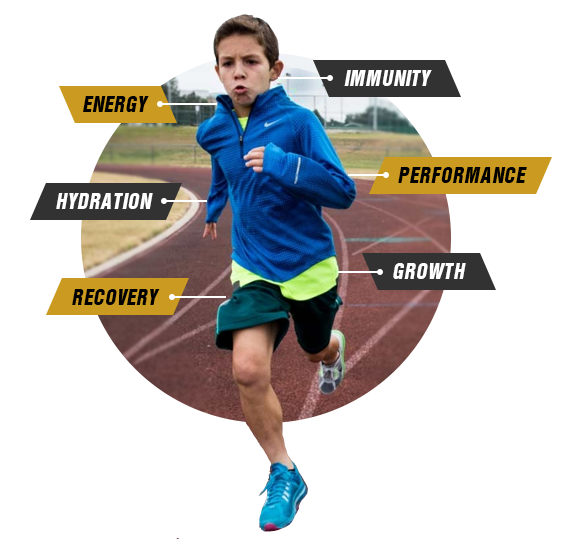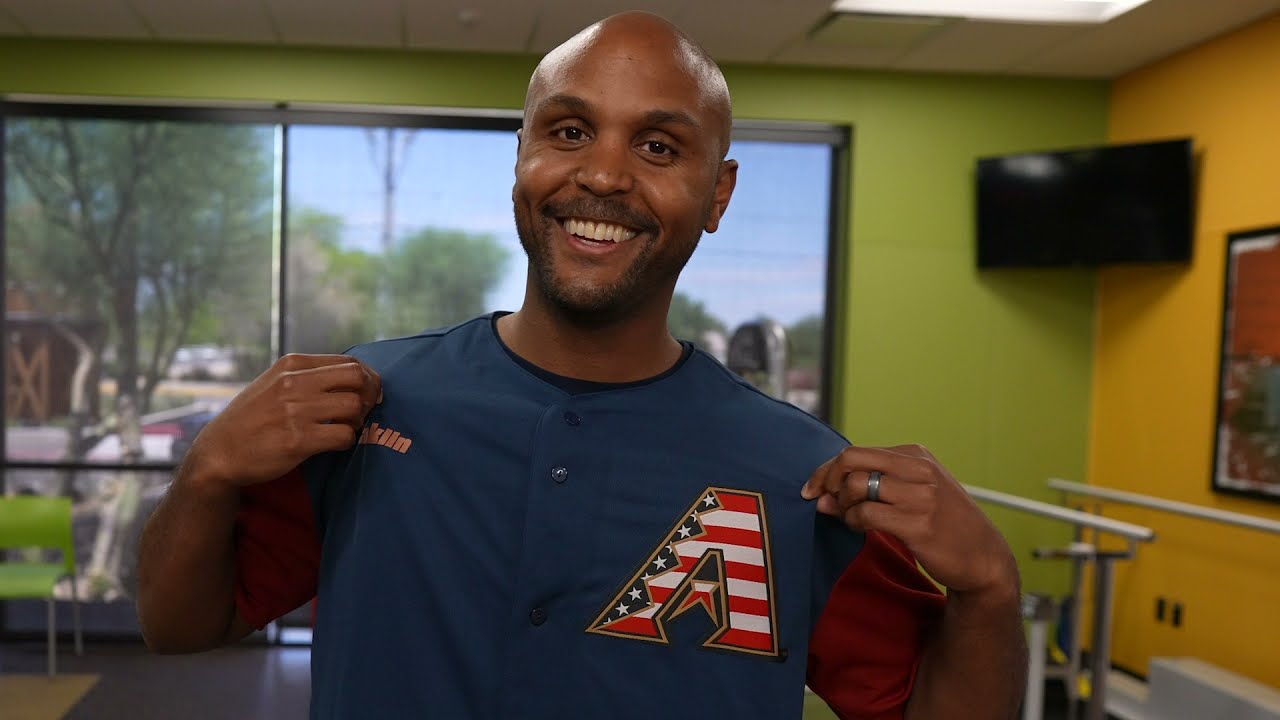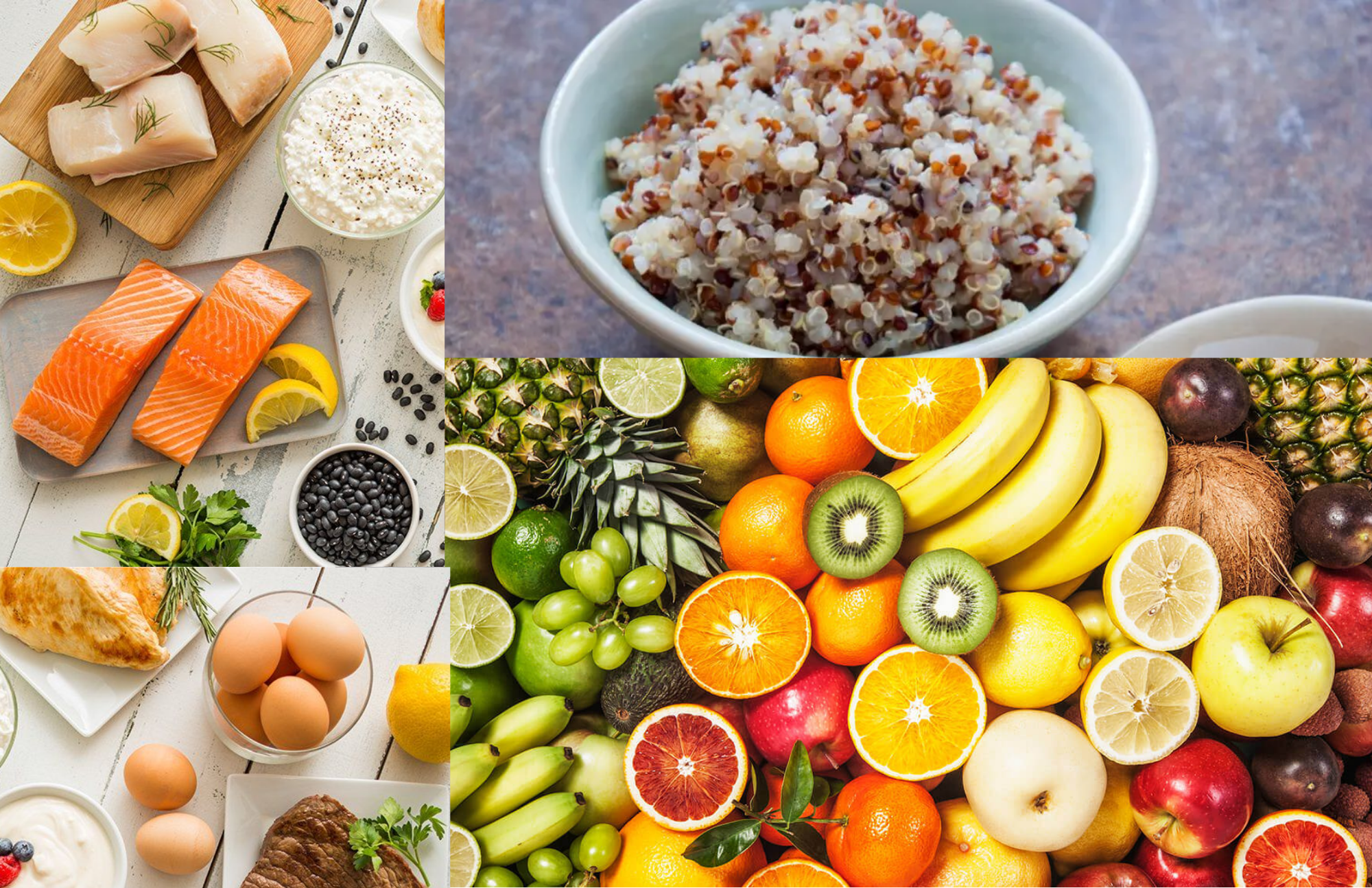The Significance Of Sports Nutrition For Young Athletes And Its Impact On Performance
Nowadays, there are more young athletes who are pursuing their goals of becoming pros someday. But in order to achieve that, nutrition for young athletes is required and is a must. Young athletes must eat well in order to maintain a healthy body and mind. An unbalanced diet can cause fatigue, poor performance, and even injury.
Author:Gabriel MartinezReviewer:Daniel ClarkApr 08, 2023133 Shares2.3K Views

Nowadays, there are more young athleteswho are pursuing their goals of becoming pros someday. But in order to achieve that, sportsnutritionfor young athletesis required and is a must. Young athletes must eat well in order to maintain a healthy body and mind. An unbalanced diet can cause fatigue, poor performance, and even injury.
Why Is Nutrition Important For Young Athletes?
A well-balanced diet is important for children as well as adults. Children, too, require a well-balanced diet. This is significant because children are still growing and developing, and they require proper nutrition to do so.
A healthy diet is even more important for young athletes. They must consume the proper foods in order to maintain their health and build muscle mass. A healthy diet will also help them recover from their workouts more quickly, allowing them to continue their training regimen without too much interruption. And it will allow them to achieve their goals, and try more extremesports in the future.
Nutrition And Training Principles
There are three training principles to follow:
- The first principle is to consume a diet rich in whole foods. This includes avoiding processed foods and simple carbohydrates, which are high in sugars, fat, and salt. Fresh vegetables, fruits, grains, beans, legumes, nuts, and seeds are examples of whole foods. Proteins from animal sources, such as fish or poultry, as well as plant sources, such as soy products or quinoa, are included in whole food diets.
- The second principle is to avoid eating processed foods. These are high in sugar, fat, or salt and if consumed in excess, can lead to weight gain and health problems.
- The third principle is to eat enough protein to support muscle growth. Protein provides the building blocks for muscles, but it should not be consumed in excess.
A young athlete's success is entirely reliant on nutrition. It has the potential to improve their performance and make them more successful in their sport. There are numerous sports that necessitate different types of nutrition.
How To Keep Young Athletes Healthy With Good Nutrition?
Making sure young athlete eats the right food is important to their health. It is crucial! The right food is crucial to ensure that the athlete receives sufficient protein, iron, calcium, and vitamins throughout the day.
Did you know that athletes require more calories than non-athletes? Because their bodies use energy constantly for their sport. They also require more nutrients than non-athletes. Athletes, for example, require more protein because it serves as an energy source during training sessions.
Nutrients And Vitamins That Young Athletes Need
Athletes need a lot of essential nutrients and vitamins to keep them healthy. Sports nutritionists recommend that athletes should take a multivitamin every day.
Some essential nutrients and vitamins that young athletes need are protein, omega-3 fatty acids, iron, calcium, vitamin D, and zinc.
Most young athletes consume the appropriate amount of food for their bodies. Some young athletes, however, have greater energy and fluid requirements. All-day competitions or intense endurance sports like for example soccergames (running) can last 112 to 2 hours or more. Children and teenagers who engage in these activities may need to eat more food to meet increased energy demands.
What Foods Should Young Athletes Eat?
Just like I've said above, it is important for young athletes to eat a well-balanced diet. In order to maintain a healthy weight and avoid injury, they should make sure that they are eating foods that are high in protein and carbohydrates.
Young athletes should also eat foods that are high in fiber, as this will help them feel fuller for longer periods of time. They should avoid sugary snacks, as these can lead to weight gain. These are the examples:
- Quinoa- Quinoa's fiber can also help with cholesterol and blood sugar levels, potentially lowering your risk of diabetes and heart disease. Quinoa is high in antioxidants, which can protect your heart and other organs from damage. A high-antioxidant diet has been linked to a lower risk of heart disease.
- Fruits- Also known as rainbows because of their different types and colors. We all know that fruits are a good source of vitamins and minerals, and they have been linked to a lowering in vitamin C and vitamin A deficiencies. People who eat fruits and vegetables as part of a healthy diet are less likely to develop certain chronic diseases. Young athletes have to be careful not to lower the vitamins in their bodies in order to fully function in the actual game.
- Lean proteins- Lean protein can help lower blood pressure and raise good cholesterol levels in the body. Adding a few portions of lean protein or swapping a higher fat protein for a low-fat protein can help you avoid high blood pressure and all of its risks. (chicken, fish, beans/lentils, tofu, eggs, yogurt, and milk)
Healthy Eating Habits That Can Help Young Athletes Perform Better
Athletes are always looking for ways to improve their performance. One way is by eating healthy. Here are some tips for young athletes to eat healthier and feel better about themselves.
1) Eat a balanced diet
2) Eat enough protein
3) Drink lots of water
4) Get enough sleep
5) Exercise regularly
6) Avoid junk food and fast food
Do not always forget this: A well-balanced diet is essential for everyone, but it is especially important for young athletes. A nutritious diet will provide the energy and nutrients that a growing child requires to excel in sports.

Sports Nutrition for Youth Athletes
After Training Sessions Or Field Game - Maintenance And Recovery Potential
The human body needs to be fueled and hydrated before, during, and after training sessions to maintain performance and recovery potential. Always bring water! Even athletes have to drink 8 glasses of water a day or more in order to get themselves up again and continue their training the next day.
Conclusion
A healthy diet is a foundation for athletic success. Young athletes must be physically fit as well as mentally healthy in order to perform at their peak. A healthy diet contains all of the nutrients the body requires for growth and development, including protein, carbohydrates, fats, vitamins, minerals, and water. Sports nutrition for young athletes must become more well-known in the name of sports in order to promote the awareness of youth deficiency.

Gabriel Martinez
Author
Gabriel Martinez is a respected author at Tennessee Independent, renowned for his expertise in covering News and Sports topics. With a comprehensive understanding of current events and a knack for delivering accurate and engaging content, Gabriel provides readers with insightful analysis and compelling narratives. His dedication to factual accuracy and commitment to delivering authoritative content make him a trusted source for news and sports enthusiasts on Tennessee Independent.

Daniel Clark
Reviewer
Daniel Clark is an experienced author at Tennessee Independent, renowned for delivering insightful articles with a professional approach. With a focus on factual accuracy and authoritative insights, Daniel covers a wide range of topics, providing valuable information and engaging narratives. His expertise in areas such as performance, player profiles, and current events ensures that readers receive trustworthy and informative content. Daniel's commitment to delivering well-researched articles makes him a reliable source for expert perspectives on Tennessee Independent.
Latest Articles
Popular Articles


